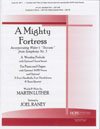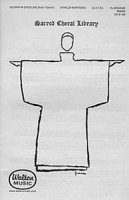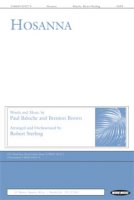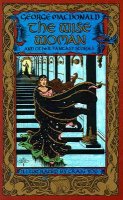 The Wise Woman: A Parable (also known as The Lost Princess, and as A Double Story) by George MacDonald (1875)
The Wise Woman: A Parable (also known as The Lost Princess, and as A Double Story) by George MacDonald (1875)
My project to read all of George MacDonald's books in chronological order (95 by 65 item #61) led me recently to The Wise Woman, and I can well see why C.S. Lewis classed it as one of MacDonald's very best stories, along with Phantastes, the Curdie books, The Golden Key, and Lilith. It's a delight through and through, and more than most fits my prime criterion for a good book: A good book inspires me to be a better person. I realize that distinction doesn't sound very impressive. I don't mean a moralistic book, or a book that tells me to be better; rather, one written in such a way as to provoke, deep within, both the desire to improve and the hope that improvement is not impossible.
The Wise Woman well deserves what Lewis said about the mythopoeic genre—at which MacDonald excelled:
[I]t produces works which give us (at the first meeting) as much delight and (on prolonged acquaintance) as much wisdom and strength as the works of the greatest poets. It is in some ways more akin to music than to poetry—or at least to most poetry. It goes beyond the expression of things we have already felt. It arouses in us sensations we have never had before, never anticipated having, as though we had broken out of our normal mode of consciousness and "possessed joys not promised to our birth." It gets under our skin, hits us at a level deeper; than our thoughts or even our passions, troubles oldest certainties till all questions are reopened, and in general shocks us more fully awake than we are for most of our lives.
Have I made it sound too intimidating? Never mind, then. It's short (116 pages), it's free on Kindle (under the title, A Double Story), and entirely grandchild-safe.
The good news about my 95 by 65 progress for the first quarter of 2015 is that I did not let the project fall by the wayside, I've made steady progress, and I am enjoying the process. I brought the following goals to completion:
#1 Create 95 by 65 list, completed 1/24/2015.
#2 Create the Leon Project, completed 1/12/2015.
#29 Research and purchase food processor, completed 1/30/2015. Some of the safety features are a little frustrating, but on the whole I really like it so far.
#48 Visit King Arthur Flour, completed 2/12/2015. Thanks, Heather!
#56 Join Twitter, completed 2/9/2015. Thanks, Stephan! I haven't yet done anything more with it besides make one tweet and read a few others. I wanted to have it set up in case of emergencies, but so far haven't found any reason to use it otherwise.
#86 Rocket boost genealogy work by end of January 2015 (40 hours of work in segments of 1 or more hours, over approximately 2 weeks), completed 2/1/2015. It was great to put in that much time, and I'd like to do it again (with some modifications), but what I really need to do is set up a system of regular, steady work in smaller chunks, which I haven't done yet. There is so much to do!
The bad news is that I completed only six items in the first quarter, which means I'm working at a rate of two goals per month, well below that needed to accomplish 95 in the 30 months I gave myself. What's more, most of these are relatively easy, short goals, unlike, for example, #91 Organize photos 2007-2011.
But I'm not discouraged. Although I only completed six goals, I've made good progress on several others. Indeed, I added three more accomplished goals to the total so far in April. I'm still behind, so I need to pay attention, and focus. But on the whole I'm happy with the system and my progress so far.
I love it that other people are so supportive in this. Heather took us to visit King Arthur Flour and a new museum (#69); Stephan sent me invitations to Twitter and Google+ (#55), and joined me in reading the Koran (#65); and Porter makes sure I get to new restaurants (#38), Universal Studios (#39), and live performances (#34); nudges me to watch Shakespeare (#67), Great Courses (#66), and NCIS (#40); encourages me to keep running (#18); and arranged for our recent trip to a new state (#44), where we visited four new museums. And more.
That said, it's still an overwhelming list, and I need to get crackin'!
I've written before about Stephen Jepson and his Never Leave the Playground program. Now he has added brachiation to his collection of fitness "toys." Note his interesting form, without the usual swinging action of the body.
Note that Jepson's solution for an easier version while building up strength is very similar to ours, though his also works when the weather's too cold for swimming. I'll have to remember that!
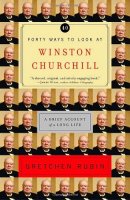 Forty Ways to Look at Winston Churchill by Gretchen Rubin (Ballentine Books, 2003)
Forty Ways to Look at Winston Churchill by Gretchen Rubin (Ballentine Books, 2003)
What can Gretchen Rubin, famous for her books on happiness (The Happiness Project, Happier at Home), add to the multitude of books written about Churchill? Plenty, it turns out—at least if you are as ignorant of history as I am. Porter found it less interesting, because for him, there was little new.
My own interest in this book was piqued for a couple of reasons. While I was checking our library for Rubin's latest book, Better than Before, this—written well before her happiness books—popped up. Because we had recently watched the excellent Great Courses series on Churchill, I snapped it up.
My knowledge of Churchill being essentially no more than I had learned through those lectures, it was good, not tiresome, to hear the same stories again. Plus, the strength of Rubin's book is not in depth or special insight, but because she pulls together views of the man from many different biographical sources, demonstrating in the process just how difficult it is to write a biography—and impossible to write an unbiased one. In fact, the only real weakness I see in Rubin's book is that she can't hide her own great admiration for the man: she can't write the opposing side convincingly. But the facts are there, positive and negative, and I highly recommend Forty Ways as an easy-to-read introduction to this brilliant, complex man and his indomitable spirit.
Disclaimer: I don't know who Matt Walsh is, although a quick search revealed that he is making enough waves that there's a website called whatismattwalshwrongabouttoday.com. That's okay; if people feel the need to attack him, he's probably doing something right, and in any case, he gets this one really, really right: “You’re a stay-at-home mom? What do you DO all day?” (H/T Jon) This husband's homage to his wife was inspired by conversations like the following:
“So is your wife staying at home permanently?”
“Permanently? Well, for the foreseeable future she will be raising the kids full time, yes.”
“Yeah, mine is 14 now. But I’ve had a career the whole time as well. I can’t imagine being a stay at home mom. I would get so antsy. [Giggles] What does she DO all day?”
“Oh, just absolutely everything. What do you do all day?”
“…Me? Ha! I WORK!”
“My wife never stops working. Meanwhile, it’s the middle of the afternoon and we’re both at a coffee shop. I’m sure my wife would love to have time to sit down and drink a coffee. It’s nice to get a break, isn’t it?”
The conversation ended less amicably than it began.
Walsh's whole commentary is worth reading. Here are some snippets.
Look, I don’t cast aspersions on women who work outside of the home. I understand that many of them are forced into it because they are single mothers, or because one income simply isn’t enough to meet the financial needs of their family. Or they just choose to work because that’s what they want to do. Fine. I also understand that most “professional” women aren’t rude, pompous and smug, like the two I met recently. ... But I don’t want to sing Kumbaya right now. I want to kick our backwards, materialistic society in the shins and say, “GET YOUR FREAKING HEAD ON STRAIGHT, SOCIETY.”
In making his point, the author fails to mention that there are other essential professions (sometimes lacking in respect), and that any legitimate work done with excellence and integrity has value, often great value. Cut him (and me) some slack: it doesn't change the truth of what he says. Our society has elevated employment, almost any employment, over work that does not bring in a paycheck, especially if the non-paying work involves home and family, like rearing children or caring for elderly parents.
It’s true — being a mom isn’t a “job.” A job is something you do for part of the day and then stop doing. You get a paycheck. You have unions and benefits and break rooms. I’ve had many jobs; it’s nothing spectacular or mystical. I don’t quite understand why we’ve elevated “the workforce” to this hallowed status. Where do we get our idea of it? The Communist Manifesto? Having a job is necessary for some — it is for me — but it isn’t liberating or empowering. Whatever your job is — you are expendable. You are a number. You are a calculation. You are a servant. You can be replaced, and you will be replaced eventually. Am I being harsh? No, I’m being someone who has a job. I’m being real. ... If your mother quit her role as mother, entire lives would be turned upside down; society would suffer greatly. The ripples of that tragedy would be felt for generations. If she quit her job as a computer analyst, she’d be replaced in four days and nobody would care.
Having been both computer analyst and mother, I can attest to what he says. Guess which career garnered the most admiration and accolades?
Of course not all women can be at home full time. It’s one thing to acknowledge that; it’s quite another to paint it as the ideal. To call it the ideal, is to claim that children IDEALLY would spend LESS time around their mothers. This is madness. Pure madness. It isn’t ideal, and it isn’t neutral. The more time a mother can spend raising her kids, the better. The better for them, the better for their souls, the better for the community, the better for humanity. Period.
The following may be my favorite paragraph of the whole article.
Finally, it’s probably true that stay at home moms have some down time. People who work outside the home have down time, too. In fact, there are many, many jobs that consist primarily of down time, with little spurts of menial activity strewn throughout. In any case, I’m not looking to get into a fight about who is “busier.” We seem to value our time so little, that we find our worth based on how little of it we have. In other words, we’ve idolized “being busy,” and confused it with being “important.” You can be busy but unimportant, just as you can be important but not busy. I don’t know who is busiest, and I don’t care. It doesn’t matter. I think it’s safe to say that none of us are as busy as we think we are; and however busy we actually are, it’s more than we need to be.
I think I'll change my advice to those who are asked the condescending and offensive question, "What do you DO all day?" And I'd apply it to almost any profession, not just motherhood—no one from the outside can really know what it takes to do another's job. First, I'd quote Elbert Hubbard: Never explain—your friends do not need it and your enemies will not believe you anyway. Then I'd suggest this as a response:
That's a trade secret, and revealing it is against the rules of our Guild.
Permalink | Read 2268 times | Comments (9)
Category Children & Family Issues: [first] [previous] [next] [newest] Random Musings: [first] [previous] [next] [newest]
For us, Easter started last night with an Easter Vigil service that was over two hours long, but wonderful. Lighting of the New Fire, procession, candles, singing, and a large number of baptisms (adult and child), confirmations, and first communions. The latter is why it was so long, but who would want fewer? I love that our church has a means of doing infant baptism by immersion (parents' choice). I also love that moment when the lights come on and we shout the first Alleluia of Easter—alleluias are banished from the service during Lent—with the whole congregation sounding bells and other happy noisemakers. (There were a few unhappy noisemakers as well, as it was a long and late night for the above-mentioned children.) I brought my tambourine, and Porter the ship's bell that Dad had given us so long ago. The latter makes quite an impressive sound.
And this morning we got to celebrate again! One of these years I expect we'll attend each and every service from Palm Sunday through Easter, one for each day of the week and two on Sunday, but not this time: once again we skipped the sunrise service, as getting to church by 8:00 for the Easter brunch seemed early enough after our late night. The youth choir sang at the sunrise service and had to be there at 6:15 to help with setup; the service is held down by the lake. I know, it seems backwards: we keep the little kids up late, and wake the teenagers early. But it's a very special time, and sacrifice is part of the process. The brunch was followed by an egg hunt for the children, but we skipped that, because (1) our grandchildren weren't here to enjoy it, and (2) the choir rehearsed during that time for the final service of the day at 10:00.
Of all the services, that one is the most traditional as modern-day Easter services go. (The Easter Vigil is actually the oldest, dating back to the very early days of Christianity.)
Prelude and Introit: A Mighty Fortress (Martin Luther, setting by Joel Raney, Hope Publishing) Judging by YouTube, the handbell version is more popular, but if you click on the link (not the image) you'll hear something more like what we had, with our brass, flute, organ, piano, and choir. My only complaint is that because it is primarily an instrumental work, the choir sings only one verse of the hymn, and the first verse of Luther's great hymn is not a good place to stop. But that was okay, because I doubt the congregation actually discerned the words over the glory of the brass and organ.
Next up, the processional hymn Jesus Christ Is Risen Today, then
Gloria in Excelsis (Vivaldi-Martens, Walton Music HL08500628 W2043), for the Gloria, of course.
Happy Easter, everyone!
UPDATE 11/11/19 Aaaaargh! As I've pointed out innumerable times, when Flash in these posts was automatically converted to iframe, which needed to be done, significant portions of the post were often accidentally deleted. Normally this doen't matter much, but in a post like this, with so much information and many videos, it really hurts. Still, it will stay like this until I find time and priority to see if there's a way to recover the data.
I've said it before, and it's still true: how blessed we are to be at a church ten minutes away from home (seven in good traffic). We've been in that situation before—in Rochester (NY) our church was only a block from home, and in Norwood (MA) it was a fine walk in good weather—but much of our time has been in churches that required significant driving time. Being so close makes it easy, or as easy as can be with busy schedules, to attend the mid-week (Monday - Saturday) Holy Week services, which are always so powerful.
For a more complete description of the general layout, see last year's Holy Week post. This year is much the same, albeit with some changes in the music. Here are the major ones:
Maundy Thursday anthem:
When I Survey the Wondrous Cross (arr. Gilbert Martin, Theodore Presser Company, 312-40785)
Good Friday anthem:
When Jesus Wept (William Billings, arr. A. F. Schultz, St. James Music Press
This is not the Parker/Shaw arrangement some of you know, which remains my favorite. However, this is also a good one, and I'm sorry I can't include a link here. All of my Internet sources have failed me this time.
We won't be singing as a choir for the Easter Vigil service tonight, but we'll be there with bells on. (Almost literally—mine may be a tambourine. Bells and other joyful noise makers are for the Great Alleluia of Easter.)
Then we get to celebrate all over again tomorrow, with a lot more music and joyful alleluias. But that will be for another post.
I'd planned to post this on Easter itself, but then I figured, why let it get lost among all the other Easter music I'll be posting? It's a brand-new Easter song, and every choir singer knows it's best to learn new songs before the actual event.
Not that many of you will be learning the words, since they are in German. I won't attempt a translation, but the text is based on the traditional Easter hymn, "Christ the Lord Is Risen Today." But the music is exciting, and even if you don't know German, I almost guarantee that if you listen a few times, the chorus will stay with you. As earworms go, it's a great one.
Here's the cool part: This new Easter song was written (music and text) by none other than our own Stephan Stücklin.
Here's the question: Can a German praise song go viral on YouTube? :)
Congratulations, Stephan; I think it's great and hope it spreads like wildfire throughout German-speaking churches. I'd happily sing it in our own church, but while the choir will occasionally sing in Latin (albeit reluctantly on the part of some), we've already drawn the line at French. (Cantique de Jean Racine in English is better than not at all, but....). I'm not too hopeful that German praise songs will become as popular here as English praise songs are in the German-speaking world.
I've copied the text below, in case anyone wants to attempt a translation. Google Translate gets the chorus perfectly:
Jesus is risen!
He is risen indeed!
Hallelujah!
But in some places their translation is downright peculiar, e.g.
Let us seek drum of the heart
After our main and Savior
Stephan, would you care to elucidate?
Jesus ist erstanden!
(Text by Stephan Stücklin, based on Charles Wesley's "Christ the Lord Is Risen Today")Chorus:
Jesus ist erstanden!
Er ist wahrhaftig auferstanden!
Halleluja!
Christen, lasst die Kehlen klingen!
Stimmt mit Engelschören ein
Unserm Gott ein Lob zu singen
Freudenfest soll heute sein, denn (chorus)
Tod, dein Stachel ist gezogen
Unser König Jesus lebt!
Deine Macht ist nun verflogen
Und kein Christ mehr vor dir bebt, denn (chorus)
Liebe hat ihr Werk vollendet
Grab, gesprengt ist dein Verlies!
Christus hat das Blatt gewendet
Uns gehört das Paradies, denn (chorus)
Wir sind sein, durch Kreuz und Leben
Nun droht uns kein Ungemach!
Lasst uns drum von Herzen streben
Unserm Haupt und Heiland nach, denn (chorus)
My favorite part of April Fools' Day is that it is the anniversary of two of my favorite people. Other than that, it's not something I usually celebrate. Practical jokes and pranks have to be really good to impress me; adolescent humor has always struck me as stupid, cruel, and pointless—never funny.
Having learned the hard way about my attitude toward that kind of humor, my husband rarely attempts to pull an April Fools' joke on me. But today he did, and even I thought it was funny.
There we were, sitting in our respective offices, calling out to each other various items of interest.
"Oh, no," he cried. "Because of the USAirways/American Airlines merger, they've changed your flight from Philadelphia - Zurich to Miami - Heathrow - Zurich."
As I was spluttering, "Oh, no! How can they do that? That's terrible," he walked through my door, smiled, and said, "April Fool!"
As April Fool pranks go, it's not on the level of the 1957 BBC report below. But it was perfect for me:
- It was plausible: Many changes have been happening due to the USAirways/American merger, and since he had made the reservation, it was logical that a change notification would have come to him. We haven't yet had an international reservation without some change being made by the airline before the flight date.
And the last time we flew American Airlines, we went through Heathrow. - It was guaranteed to generate a response of dismay from me: I had been greatly looking forward to a flight to Switzerland with only one intermediate stop. Plus, Miami and Heathrow are two of my least favorite airports.
- It wasn't anything really bad: Annoying, but not scary.
- He didn't drag it out: Relief came quickly.
It was great for both of us to start the day with a good laugh. That's enough though. I'm a little worried about choir rehearsal tonight....
Here's the promised BBC story:
Permalink | Read 2092 times | Comments (0)
Category Everyday Life: [first] [previous] [next] [newest]
Thus begins Holy Week. It couldn't have been better weather: sunny, dry, temperatures dancing around 60 (a nice break between episodes of 80's). Of course we sang All Glory, Laud, and Honor while nearly everyone processed around the church grounds. The end of the line got off from the beginning in the singing, but that's standard, too, and we all came together as we entered the church. We waved palms and played instruments, and I even got to wail on my tambourine.
I really enjoyed our anthem, which I had not expected, as it's definitely not my style of music. But it finally came together for me in the service.
Hosanna (Paul Baloche, Brenton Brown/Robert Sterling, Word Music, 08089039270)
I apologize for the recording (click on the image), but bad as it is, it really is better than what I was able to find on YouTube, which is all electric guitars and flashing lights and pounding drumbeats (yes, more headache-inducing than in this recording). Truth be known, I'm sure the YouTube versions are closer to the original, especially since some of them are by the author himself.... But I like our version better.
I won't mention all the service music, but it was beautiful, and I can't resist pointing out that we're on a Paul Gerhardt roll—an anthem two weeks ago and O Sacred Head today.
Our recessional was the solemn and awesome Vaughan Williams hymn, At the Name of Jesus. I've loved that hymn for a long time, but today singing it was a bit surreal for me, as superimposed on it in my heart was a vision of the Christians being slaughtered by ISIS and other extremists for exactly that Name of Jesus.
At the Name of Jesus, every knee shall bow,
Every tongue confess Him King of glory now;
’Tis the Father’s pleasure we should call Him Lord,
Who from the beginning was the mighty Word.
At His voice creation sprang at once to sight,
All the angel faces, all the hosts of light,
Thrones and dominations, stars upon their way,
All the heavenly orders, in their great array.
Humbled for a season, to receive a name
From the lips of sinners unto whom He came,
Faithfully He bore it, spotless to the last,
Brought it back victorious when from death He passed.
Bore it up triumphant with its human light,
Through all ranks of creatures, to the central height,
To the throne of Godhead, to the Father’s breast;
Filled it with the glory of that perfect rest.
Name Him, brothers, name Him, with love strong as death
But with awe and wonder, and with bated breath!
He is God the Savior, He is Christ the Lord,
Ever to be worshipped, trusted and adored.
In your hearts enthrone Him; there let Him subdue
All that is not holy, all that is not true;
Crown Him as your Captain in temptation’s hour;
Let His will enfold you in its light and power.
Brothers, this Lord Jesus shall return again,
With His Father’s glory, with His angel train;
For all wreaths of empire meet upon His brow,
And our hearts confess Him King of glory now.
Update 11/11/19: As has happened with several old posts containing videos, I'm pretty sure a chunck of the post was accidentally removed in the process that switched the videos from Flash to <iframe>. Someday I may try to recover it ... but realistically, probably not.
 The Winged Watchman by Hilda van Stockum (1962)
The Winged Watchman by Hilda van Stockum (1962)
When I was a child our family hardly ever bought books. We were great readers—we didn't own a television set until I was seven years old—but books were too expensive to buy when the public library was free. If our tiny village library in Scotia, New York did not have what we needed, an expedition to the Schenectady city library was usually sufficient. (There was no Inter Library Loan at the time.) Imagine the glory when we moved to the Philadelphia area and I discovered that their incredible Free Library was only a train ride away.
Printed books were also (relatively) more expensive then, as this was before the explosion of available paperback books and well before the view of books as disposable items. Nonetheless, one of the great things my parents did for me was to sign me up for the Weekly Reader Children's Book Club, which periodically delivered a brand-new hardcover children's book to our door. I still have many of the books, and am surprised at the consistent, excellent quality (considering how many bad children's books are now available), even looking back from the perspective of over half a century.
One of those books was The Winged Watchman, a story of Holland during World War II. I had passed my copy on to our grandchildren, but it was recently returned because they had acquired another copy through their homeschooling curriculum. Naturally, I couldn't resist re-reading one of my childhood favorites.
The Winged Watchman is still a favorite. It's a glimpse of another culture in very difficult time, historically accurate without being depressing or overly graphic, and fits well my definition of a good book. (A good book inspires me to be a better person.)
Last Sunday it was our great pleasure to sing two beautiful anthems, both favorites of ours for a couple of decades.

Come Holy Spirit, Heavenly Dove (Cox/Lindh, Sacred Music Press, S464)
Not the best recording, but good enough for this purpose.
Update 11/11/19: As has happened with several old posts containing videos, I'm pretty sure a chunck of the post was accidentally removed in the process that switched the videos from Flash to <iframe>. Someday I may try to recover it ... but realistically, probably not.
Our grandson has a birthday coming up. Okay, two grandsons have a birthday coming up—the same day, in fact—but that's for the moment beside the point. The problem is that we were given a great gift idea, but I'm having an astonishingly hard time fulfilling it. He loves to read, and science books would be particularly welcomed. His current interest is planets but it's just as likely to become airplanes or frogs or the periodic table—just about any appropriate subject would be good. Reading/grade level is hard to determine. I'd have guessed maybe third, but I've seen plenty that Amazon has rated fifth through ninth that could be appropriate—I'm sure they're underestimating fifth graders, let alone ninth! But generally I'd say I'm looking for books aimed at elementary school age.
You'd think there'd be plenty, and there certainly is no dearth of apparently appropriate books. But oh, my. I don't want something obviously intended for schools, with questions and lesson plans. I don't want jokes, especially not dumb jokes, and most especially not jokes about flatulence. Flatulence? Really? In a discussion of Brownian motion? This was in an otherwise appealing book, and leads me to suspect the whole series; Amazon only lets you preview a few pages, and I'm left wondering what unpleasant surprises lurk, unexamined. Sad, because the series (Basher books) is otherwise one of the most attractive.
Condescension is almost as bad as flatulence. Isn't it possible to present facts simply without talking down to your audience? National Geographic books looked promising at first, but they don't have a lot of choice and are not free from condescension and stupid jokes. I'll probably get some nonetheless, but I'm hoping for suggestions from those of you with more experience. Bring them on, please!
I'm quite behind in logging our choir anthems, mostly because we've been gone a lot. Rather than attempting to catch up, I'll just begin again with last Sunday. Both were repeats: Give to the Winds Your Fears, and The Lord's Prayer, and were in honor of the 50th wedding anniversary of two of our church members. What else do they have in common? Cello parts. A generous member of the congregation has made it possible for us to have a cellist play with us once a month, and Raphael is a favorite of us all.
He also provides good spiritual excercise for me, as he is very active with a local youth orchestra, the very existence of which is a burr under my skin because of a series of unfortunate and painful events that took place nearly 20 years ago. Whenever he comes, I can't help remembering those times. It's absolutely ridiculous that I should still allow it to upset me—not to mention that I'm commanded to forgive even my enemies, and if these folks made our lives difficult for a while they certainly didn't cut off anyone's heads. So I listen to Raphael's beautiful cello music and forgive, again. People who preach forgiveness sometimes forget to warn that it must often be renewed many times. Or, as a friend puts it, "I placed my sacrifice on the altar, but it crawled off."
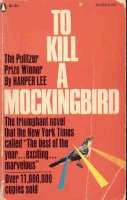 To Kill a Mockingbird by Harper Lee (1960)
To Kill a Mockingbird by Harper Lee (1960)
I don't remember when I first read To Kill a Mockingbird. Or even if I read it at all. Did I read it in school, and was it therefore in my mind consigned to the Pit as worthless? (I am an avid reader and re-reader, but no thanks to school, which utterly failed to reveal to me the good qualities of any book we were forced to read.) Did I read it after meeting Porter and learning that this is his all-time favorite book? Or did I only watch the movie? If I did read it, I know I was not impressed, because books that I find worthwhile I will read over and over again, soaking them into my very being—and I know I didn't read To Kill a Mockingbird twice.
I'm really curious: Did I make my judgement on the movie alone? Movies rarely impress me the way books can. Or was I just not psychologically ready to appreciate Harper Lee's masterpiece? The latter is possible. If I read it under Porter's influence, I would still have been very close to my school years and thus predisposed to being negative about "important" literature. More to the point, I was at that time in my life extremely prejudiced against the South, and would have had little appreciation and less sympathy for the tribulations of small-own Alabama and its people. I also had much less appreciation for good writing then than I do now.
Whatever the case, I was inspired by two recent events to give To Kill a Mockingbird another try. First, we attended a local theater presentation of the story, which was excellently done and served to reveal that I'd clearly gotten nothing out of my first experience, be it book or movie. Second, Heather was given some lavender bath salts that she had passed on to me, and I wanted to try them out. I love to read in the bath, but my current reading was on my Kindle, and the combination of electronics and bath water sounds like a disaster waiting to happen. So I pulled To Kill a Mockingbird off the bookshelf and dove into new waters—both physical and metaphorical.
It took me nearly half a century to discover it, but Porter was absolutely right: this is an astonishingly wonderful book. I knew in the first two pages that if I had ever read it before, I certainly hadn't read it. What wonderful writing! What a beautiful and important story! If I had to boil my definition of a good book down to one sentence, it would be this: A good book inspires me to be a better person. The character of Atticus Finch alone can provide a lifetime of inspiration.
C. S. Lewis once wrote that it is easy for an author to create evil characters, because he need look no further than his own heart for inspiration, but to be able to create a credible portrait of good is a rare gift. Lewis was, in that instance, praising the Scottish author George MacDonald, but I'm certain he would have said the same about Harper Lee. Atticus Finch is as inspiring a noble character as could be wished. At the same time, there is not a whit of sentimentality anywhere in the book. There is real life, hard times, hard-core racism, poverty, incest, drug addiction, mental illness ... heroism, understanding, self-sacrifice, duty, love ... above all there is grace ... all in a package that I would not hesitate to recommend to our 11-year-old grandson.
The movie version with Gregory Peck is well-known, but I wouldn't go there. Nothing less than the book could possibly do justice to the story.
For certain if I read To Kill a Mockingbird in the past it was well before homeschooling was ever on my radar. Else how could I possibly have forgotten these passages? Minor though they certainly are in the course of the story, they are nonetheless brilliant. (More)

